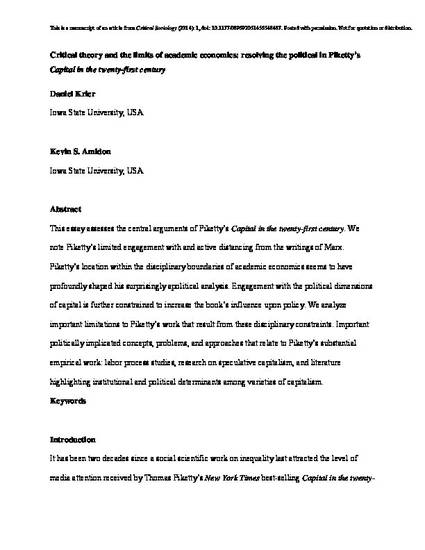
This essay assesses the central arguments of Piketty’s Capital in the Twenty-First Century. We note Piketty’s limited engagement with and active distancing from the writings of Marx. Piketty’s location within the disciplinary boundaries of academic economics seems to have profoundly shaped his surprisingly apolitical analysis. Engagement with the political dimensions of capital is further constrained to increase the book’s influence upon policy. We analyze important limitations to Piketty’s work that result from these disciplinary constraints. Important politically implicated concepts, problems, and approaches that relate to Piketty’s substantial empirical work are: labor process studies, research on speculative capitalism, and literature highlighting institutional and political determinants among varieties of capitalism.
Available at: http://works.bepress.com/kevin_amidon/4/

his is a manuscript of an article from Critical Sociology (2014): 1, doi: 10.1177/089692051456548487. Posted with permission. Not for quotation or distribution.